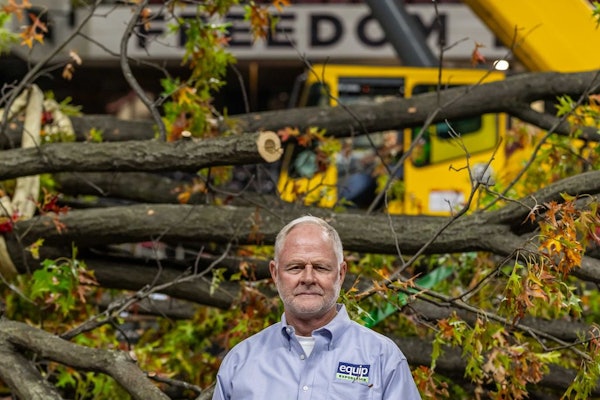 Photo: Pexels
Photo: PexelsI was 14 years old working in my father’s landscape business over the summer when I saw them. I was impressed by the fully uniformed staff with the logoed trucks all working together. This company did everything in the fancy community.
They had a truck that did just irrigation. Another that did just trimming and detailing and another that did all the gorgeous seasonal flowers in front. There was even a shiny pick-up truck that went around just checking on the guys. I remember thinking “This is what I want my company to be.” So, I set out to do just that.
But if you were like me back then, you have no idea how to start working with HOA clients. When I took over my father’s residential landscape business at the age of 22 I had no idea either. It was just my brother-in-law and I doing about 90 residential customers that we bought from my dad.
I was fresh out of college with a degree that I knew I would never use (Interdisciplinary Natural Science, if you’re wondering). I had no background in marketing or business, how was I supposed to run a company or grow it the way I want?
I found out that residential customers were easier to get. You could order some door hangers, walk around a neighborhood and within a couple weeks you would have a few customers. Then if those customers were happy they would tell other customers. With a nice referral system in place pretty soon you have a good route going.
I knew it wasn’t exactly the kind of business I wanted though. So how were those impressive companies I saw as a kid getting the contract for the entire community? Where do you even start? Here are the steps I took to go from zero accounts to having dozens of HOAs that grew my business like crazy:
1. Know how they work. It all starts with knowing how HOAs or any community association works. Community associations (includes HOAs, condos, villas, co-ops, etc.) are corporations formed by developers, which are eventually turned over to the homeowners after selling a certain amount of lots.
There are volunteers that live in the community that make up a board of directors who are responsible for enforcing the governing documents (or rules) of the community. They are also responsible for hiring all the vendors including association management, accountants, landscapers, painters, roofers, etc.
These are the real decision makers, so it is important to make a good impression with them whenever possible. However, most of the time it is the community association management company that all vendors go through. These would be considered the gate-keepers that have experience working with different vendors and will be the ones to introduce you to the board with your proposal.
It is their responsibility to seek out the most qualified companies at the best price possible. Basically, the companies that will make them look good and make their jobs easier. The residents of the community will have input because they will be the ones complaining to the management company, which will eventually trickle down to the board.
Learn how to do excellent work, promote great customer service and communicate effectively to all the different parties and you will be successful.
2. Be qualified to work. This one is pretty obvious, but you will be surprised at how many companies out there try to get the work when they have no insurance, no workers comp, and no professionalism at all.
What do I mean by professionalism? No HOA really wants two men in tank tops and a beat-up truck. Don’t get me wrong. You don’t have to be a big company to land an HOA, but you do have to look like a respectable company. This means having uniforms, clean lettered trucks, and decent equipment. Be the kind of company that you would want to see outside of your home and around your family.
3. Target the right HOA. I cannot stress the importance of this one enough. It is vital that you know your abilities and limitations. If you are a small company with only a couple employees, it would not be smart to go after a high profile HOA that demands 10 employees there all week.
Too many landscape companies bite off way more than they can chew, underbid it, make no money and complain about the HOA, eventually quitting or getting fired. I believe the best fit for beginners are small condo communities. You can get a lot of experience in the dynamics of working for a board while taking work orders from an association management company, but not have all the logistics and headaches that a large community demands.
So while you are driving around, look for indicators that a community is being neglected. A major indicator is that the front entrance signage or key area, like the clubhouse is not being cared for. If the landscape contractor is not taking care of these items, then chances are they are slipping in the eyes of the board or management company.
4. Find the decision makers. So here is where a lot of the mystery is. How do you even find the decision makers for this community? Now there are strategies to contacting the board of directors for each community, but they require much more work, time, and money than contacting the management company.
So how do we contact the management company? There are several ways of doing this. Sometimes the easiest way is just to google “ABC HOA” and you may get a website that was set up by the management company and will publish their contact information.
Other associations require a little digging. If the community has an information board, then they usually have a letter written by the management company posted there. Take down the information, even if it is just a name or number. You can then search these items and get their information.
If there is no information board, keep in mind that each HOA is incorporated and will have filed with the state. Find the government site that regulates these items and the address to these associations is usually registered under the management company since all paperwork goes through them. Still lost? Sometimes it may just be easiest to ask someone in the community who is their management company.
5. Introduce yourself. Now that you have found the management company, call them up and ask who manages the specific community. They will readily make this available since they believe you are a resident.
If you make contact with the manager simply introduce yourself and your company, then say “I hate to bother you, but I am really interested in giving you a landscape maintenance proposal for ‘ABC HOA.’ Can you tell me if that is possible?”
The worst they can say is “No, not at this time.” At this point you can ask them when they believe they will be accepting proposals, get their email address to send your information and mark it on your Excel spreadsheet to call back at the time they say and thank them for their time.
Now, if they say “Yes, you can submit a proposal,” then thank them profusely, get their email address, thank them again in email form, and get that proposal to them as quickly as possible. Even if nothing comes of it, they will have it available if they ever need it and now has your contact information for any other communities that come up. You will not believe how many communities I have gotten because they were alternatives to the original I tried to get.
Bonus step. Follow up, follow up, follow up. One of the biggest determining factors in landing an HOA is how much interest you take in their community. No one wants to hire a company that has no interest in them. Trust me, I have landed so many HOAs just based on my eagerness to work with them.
Always be sure to follow up until the point of exhaustion and until you know for sure there is no hope in ever getting a community. This means emailing, calling and even stopping in for a visit to the management office once in a while.
By utilizing this knowledge and implementing these steps, I have been able to build a business whose central focus has been on working with HOA and community associations. It may take some patience and hard work, but the rewards are well worth the wait. Once you learn these steps you can repeat them for continued success.
EDITOR’S NOTE: This article was written by Derrick Paredes. Paredes is the owner of Green Industry Giants. He currently runs his own successful multi-million dollar landscaping business and is also committed to helping other green industry professionals grow and maintain a successful business. You can find more information on his blog at greenindustrygiants.com.










